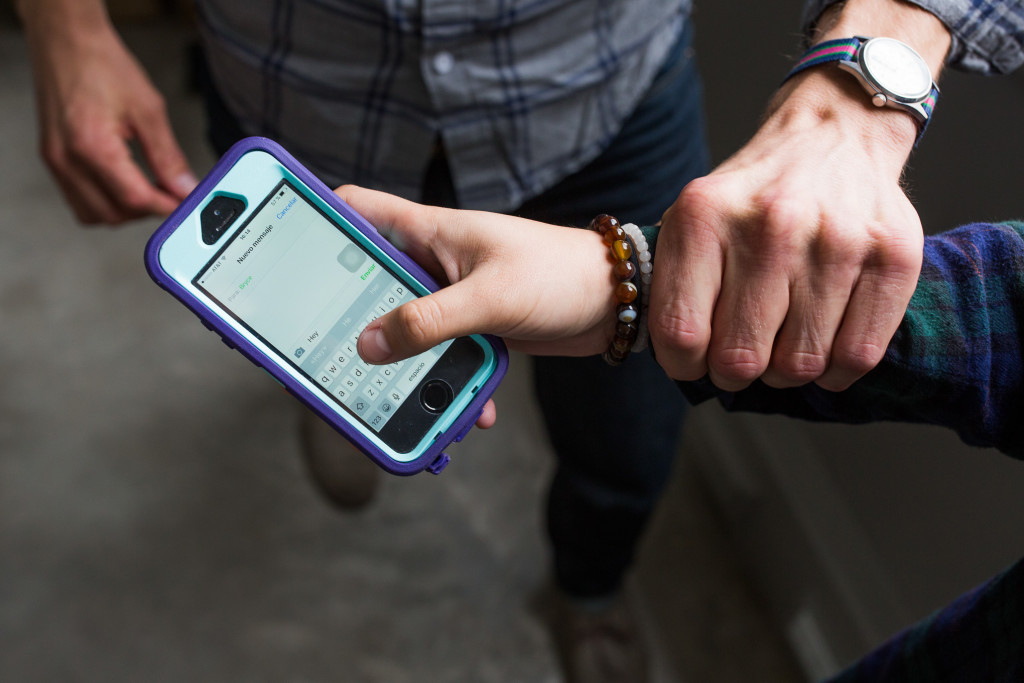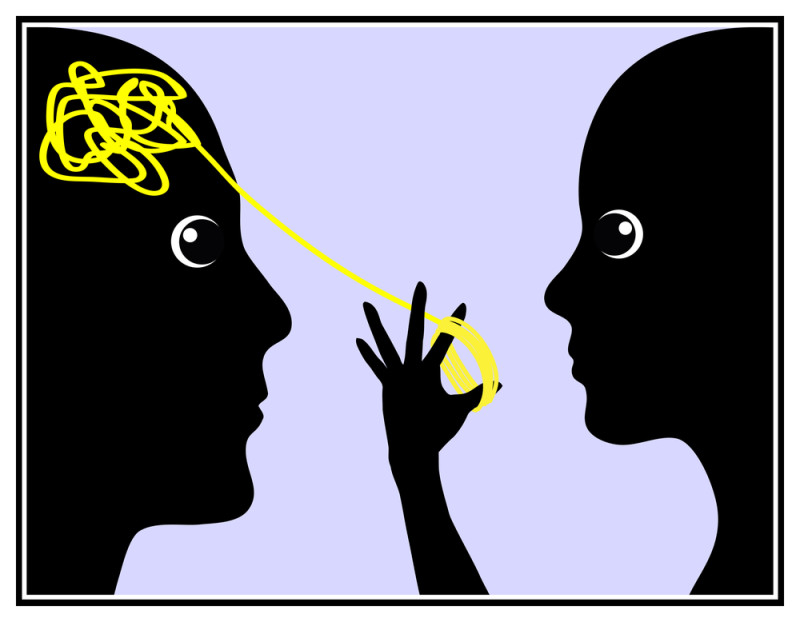5 Signs of Abuse and Violence in Teenage Relationships

Upon hearing the words “abusive relationship”, you would be forgiven if your first thought was of a stereotypical image of male terrorizing a female. And though this is a dynamic that exists, with 1.3 million out of 1.9 million current victims in the UK reported to be female, it is not always the case. Anyone can be a victim of violence or abuse in a relationship, regardless of gender or age. And without help or guidance, it can sometimes be difficult to distinguish normality from certain types of abuse. This line can be especially murky with teenagers, many of whom will be experiencing their first real relationships. Within this article, five different areas of abuse and violence will be explored, containing information and advice that I wish I had when I was 15 and trying to navigate a relationship for the first time.
1. Loss of Privacy

At some point, a parent and/or role model will probably sit you down and tell you not to drop your friends for a relationship. They’ll tell you to not to let your partner force you into anything, and to wait until your old enough. That’s a great start. But who tells you that it’s okay to keep your IPhone passcode private? When I was a teenager at the beginning of my first real relationship (around seven years ago), we were the first generation of widespread smartphone and social media users. We didn’t have anyone to explain the rights and wrongs of usage or even our right to keep things to ourselves.
I’m sure many teenagers in their first relationship often found themselves on the receiving end of the line: “Why can’t I see it? What are you hiding?”. It is exhausting and often leads to the editing of messages or phrasing things in a certain way. This is not for the receiver of the message, but for the person you know is ghosting through them. If you do not like it, then stop it. Change your passwords, brace yourself for the arguments. It may be frustrating and it may be upsetting. But if they love you they will let you take your social life back. Just to clarify, there is nothing wrong with sharing your social media/messages with your partner, so long as it’s mutually consentual. For more advice, click here.
2. Isolation

Have you noticed recently that you don’t see your friends as often as you used to? If the answer is “yes”, then perhaps you should examine why. More specifically, ask yourself whether your partner has anything to do with it. Have they ever given the impression that they don’t like your friends? Often it is not obvious, but is shown in much subtler ways. For example, they whine and complain that you don’t pay enough attention to them in groups. This tends to be the case when the people you like to spend time with are of the same gender that you are attracted to. And if you are attracted to more than one gender, the jealousy is that much worse.
If your partner is possessive in this way, you may be good at not abiding by it. As for the rest of us, we would find ourselves sitting at home and hoping we still have friends after the tenth turned-down invite in a row (often they do, which is the beauty of strong friendships). You feel like you can’t go to that party because if someone hits on you, you “probably didn’t do enough to turn them down”. In case I haven’t made it clear, this is not acceptable behavior and a long, rational conversation needs to be had. Hopefully, they concede and promise to stop this behavior. However, if it dissolves into an argument or they continue to be resistant, it may be time to leave the relationship altogether.
3. Verbal Abuse/Manipulation

Not to sound patronising, but teenage years really are a time for exploration and character building. You learn key social and relationship-maintaining skills such as compromise. I remember what an angry teenager I was and how difficult it could be to forgo what I wanted for the sake of someone else- raging hormones and all that. People want what they want, and sometimes go about getting it in morally-lacking ways such as manipulation. Especially in a person’s first serious relationship as a teenager. They are insecure, so they don’t want to be seen as a horrible person.
Even if it is unintentional, it is abuse. And it can be so sneaky that it leads to other issues such as gaslighting. This is where your partner feeds you false information about a past event, about something you or they supposedly said or did, until you believe it. It often makes it easier for them to seem like a “good partner”.
Research shows that self-esteem levels plunge during teen years. So anything from manipulation to words meant to tear you down can serve to make you feel even lower. This is a game to make you feel as though you can’t do any better than the person in front of you. Once you see these actions for what they are, you can decide whether to try and talk it out or cut the relationship off altogether. This article offers more information and great advice on what to do in these situations.
4. Sexual Abuse

I know this seems like you’d know it if you saw it, but actually it comes in various forms. Sexual abuse involves everything from rape to pressure, manipulation, coercion, the forced sending of nude pics, and more. Perhaps your partner would never physically force you into sexual acts, but you feel uncomfortable with providing a simple “no”. If this is the case, it is up to you to examine where this feeling comes from. Teen years are rife with peer pressure, so it could be as simple as not wanting to be the last virgin in your friendship group. This shouldn’t matter, but that’s another story.
If however, the pressure comes from your partner, then it becomes abuse. This is most likely to occur when there is some form of power imbalance. For example, the abusive partner is more experienced or they are popular at school and so you feel like you should be “lucky to be in this position”. The definition of sexual abuse is so widespread with many seemingly grey areas. The most productive step forward is further education and awareness on this aspect. There are government campaigns that have aimed to improve awareness. Alternatively, here is a website created by teens that aims to provide education for all sexualities around a vast range of topics.
5. Domestic Violence

Domestic violence is not always as clear-cut as it sounds. It can be hard to recognize when the media is occassionally guilty of romanticising certain aspects (e.g. Rachel McAdams punching Ryan Gosling in the chest in the Notebook; a “cutsie” display of anger). Sometimes, it is the manic pixie dream-girl who has suffered a string of abusive relationships and is put on a pedestal. Someone waiting to be saved and to idealize. Research already exists as to the problematic nature of this. We are looking at this as teenagers, and this is why so many are unsure. Someone putting their hands on you (unless out of mutually consented playfulness) is NOT acceptable. If it is the first time it has happened and you were not physically hurt but rather concerned, it may be possible to have a conversation about it. Or maybe you would rather get out now.
You may also resemble the textbook image. If so, there are a variety of resources available, because it’s not always as simple as “calling the police”. As a teenager, it’s unlikely the two of you live together. However, there are a whole host of other things to worry about. Are they popular at school, making it a case of your word vs theirs? Are you worried about being labeled as the person who potentially ruined their future? Or what if reporting them gets you nowhere and you have to see them in school everyday with the mutual knowledge of what you tried to do hanging between you? As for the last one, here is a website offering online help with the added buffer of anonymity. Try to remember that anyone who seriously hurts someone should be prepared to reap the consequences. Forget their chances of getting a job or going to Uni. You didn’t ruin that, they did.
For more information on violence and abuse in teenage relationships, all websites and articles mentioned above are provided below. Hopefully this list was helpful for those who needed it. Have you ever been in an abusive relationship as a teenager? Leave a comment below!
References/Resources/Extra Reading
About domestic abuse | Safelives. (2017). Safelives.org.uk. Retrieved 22 August 2017, from http://safelives.org.uk/policy-evidence/about-domestic-abuse#facts and stats
Asking for Help — YoungMinds. (2017). YoungMinds. Retrieved 23 August 2017, from https://youngminds.org.uk/find-help/looking-after-yourself/asking-for-help/
Dunder, E. (2017). The Manic Pixie Dream Girls in John Green’s Looking for Alaska and Paper Towns.
If you could see youself. (2017). YouTube. Retrieved 23 August 2017, from https://www.youtube.com/watch?v=YPC-Q2NMwJw
Lam, A., Akiyama, N., & Wampold, G. (2017). Home. Sexetc.org. Retrieved 23 August 2017, from https://sexetc.org/
Leigh, D., & Leigh, D. (2017). How To Prevent, Recognize and Recover from Gaslighting. I Heart Intelligence. Retrieved 23 August 2017, from http://iheartintelligence.com/2016/05/20/prevent-gaslighting/
The National Domestic Violence Hotline | What is Live Chat?. (2017). Thehotline.org. Retrieved 23 August 2017, from http://www.thehotline.org/what-is-live-chat/
Robins, R. W., Trzesniewski, K. H., Tracy, J. L., Gosling, S. D., & Potter, J. (2002). Global self-esteem across the life span. Psychology and aging, 17(3), 423.
Yours & Mine: Respecting Personal Privacy in Your Relationship. (2017). PairedLife. Retrieved 23 August 2017, from https://pairedlife.com/relationships/Yours–Mine—Respecting-Personal-Privacy-in-Your-Relaitonship
Edited by Viveca Shearin



Responses